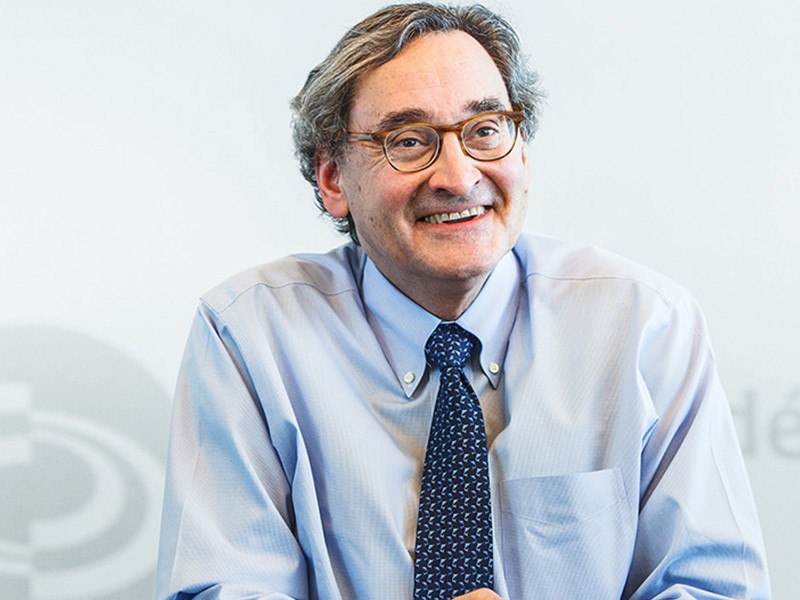

One of Canada’s largest pension fund managers says trillions of dollars should be shifted into investments that will counter global warming, in part because it’s crucial to long-term profits.
Michael Sabia, president and chief executive officer of the Caisse de dépôt et placement du Québec, spoke Tuesday at a roundtable discussion on sustainable finance on the eve of a three-day meeting of G7 environment, oceans and energy ministers in Halifax. The G7 ministers will be discussing climate change, plastics pollution, illegal fishing and clean energy at the meeting.
Sabia said government action is urgently needed, but he also urged capitalists to stop seeing climate change solely as a risk and to “get on with” seeking profits from the need for more renewable energy, low-energy real estate and low-carbon transport systems.
Read: Institutional investors sign declaration for climate change accountability
“Climate change and responding to climate change is an important investment opportunity. It’s a profitable investment opportunity,” said the executive.
The pension fund manager told the gathering of business people, civil servants and non-governmental experts that about $45 trillion in long-term investments handled by institutional pension funds should move more quickly to areas such as clean-energy, low-energy buildings and low-carbon transport systems.
As Sabia began speaking, he reviewed the past summer’s evidence of the impact of climate change. “We see its impact every day. Heat waves and drought in Europe. This summer record temperatures of 33 degrees Celsius north of the Arctic circle. . . . Deadly hurricanes, floods, wildfires that were the largest in the history of the state of California,” he said.
Some business leaders are starting to factor climate change into their investment and planning decisions, but the pace needs to accelerate, he said.
Read: Investors cite returns, risk management as drivers for ESG integration
“Some of that is happening across funds around the world. But my point is: not nearly enough,” he said. “Why is that? Because too many investors, even long-term oriented investors, still see climate change as a constraint, as something that forces them to make a choice, to compromise their returns.”
But he said more investors must shift away from this way of thinking. “Climate change . . . is not a constraint. It’s an opportunity to do two things: to contribute positively to the transition to a lower carbon economy and at the same time . . . to generate the returns we need to be good stewards of people’s savings.”
The Caisse announced last year it plans to reduce the carbon footprint of its overall portfolio by 25 per cent by the year 2025. Sabia said it’s working out well.
“There’s growth everywhere as a result of the beginnings of a reaction to the threat of climate change . . . the energy sector is one example,” he said. “At least 50,000 megawatts of new wind power is being installed annually . . . that’s equivalent to the utility . . . of Hydro Quebec.”
Read: Caisse seeks 50% boost to low-carbon investment under new green-focused strategy
He cited his pension fund’s investments in solar and wind energy, along with low-energy real estate projects, as producing strong returns, mentioning its investment in the fast-growing Azure Power Global Ltd., a solar producer in India.
